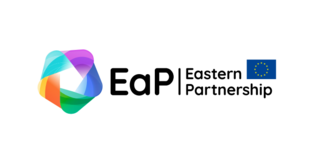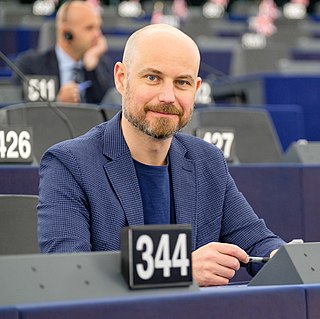Disinformation is false information deliberately spread to deceive people. Disinformation is an orchestrated adversarial activity in which actors employ strategic deceptions and media manipulation tactics to advance political, military, or commercial goals. Disinformation is implemented through attacks that weaponize multiple rhetorical strategies and forms of knowing—including not only falsehoods but also truths, half-truths, and value judgements—to exploit and amplify culture wars and other identity-driven controversies."
A cybersecurity regulation comprises directives that safeguard information technology and computer systems with the purpose of forcing companies and organizations to protect their systems and information from cyberattacks like viruses, worms, Trojan horses, phishing, denial of service (DOS) attacks, unauthorized access and control system attacks. While cybersecurity regulations aim to minimize cyber risks and enhance protection, the uncertainty arising from frequent changes or new regulations can significantly impact organizational response strategies.

Russia–European Union relations are the international relations between the European Union (EU) and Russia. Russia borders five EU member states: Estonia, Finland, Latvia, Lithuania and Poland; the Russian exclave of Kaliningrad is surrounded by EU members. Until the radical breakdown of relations following the 2022 Russian invasion of Ukraine, the EU was Russia's largest trading partner and Russia had a significant role in the European energy sector. Due to the 2022 Russian invasion of Ukraine, relations became very tense after the European Union imposed sanctions against Russia. Russia placed all member states of the European Union on a list of "unfriendly countries", along with Taiwan, South Korea, Japan, Singapore, the United States, NATO members, Canada, Australia, New Zealand, Norway, Switzerland, Micronesia and Ukraine.

North Macedonia is a signatory to the European Convention on Human Rights and the U.N. Geneva Convention relating to the Status of Refugees and Convention against Torture, and the Constitution of North Macedonia guarantees basic human rights to all citizens.

The Institute for Strategic Dialogue (ISD) is a political advocacy organization founded in 2006 by Sasha Havlicek and George Weidenfeld and headquartered in London, United Kingdom.

The Eastern Partnership (EaP) is a joint initiative of the European Union, together with its member states, and six Eastern European countries. The EaP framework governs the EU's relationship with the post-Soviet states of Armenia, Azerbaijan, Belarus, Georgia, Moldova, and Ukraine. The EaP is intended to provide a forum for discussions regarding trade, economic strategy, travel agreements, and other issues between the EU and its Eastern European neighbours. It also aims at building a common area of shared values of democracy, prosperity, stability, and increased cooperation. The project was initiated by Poland and a subsequent proposal was prepared in co-operation with Sweden. It was presented by the foreign ministers of Poland and Sweden at the EU's General Affairs and External Relations Council in Brussels on 26 May 2008. The Eastern Partnership was inaugurated by the EU in Prague, Czech Republic on 7 May 2009.
The EU Intelligence and Situation Centre is a "civilian intelligence function" of the European Union (EU). Structurally, it is a directorate of the External Action Service (EEAS) and reports directly to the EU's High Representative for Foreign Affairs and Security Policy. Article 4 of the Treaty on European Union, among other things, expressly states that "national security remains the sole responsibility of each Member State". EU INTCEN's analytical products are based on intelligence from the EU Member States' intelligence and security services.

Cuba–European Union relations are the international relations between the Republic of Cuba and the common foreign policy and trade relations of the European Union (EU). Relations have been strained in recent years, due to Cuba's poor human rights record and the European Union's numerous accusations of Cuba's human rights abuses.
Hybrid warfare is a theory of military strategy, first proposed by Frank Hoffman, which employs political warfare and blends conventional warfare, irregular warfare, and cyberwarfare with other influencing methods, such as fake news, diplomacy, lawfare, regime change, and foreign electoral intervention. By combining kinetic operations with subversive efforts, the aggressor intends to avoid attribution or retribution. The concept of hybrid warfare has been criticized by a number of academics and practitioners due to its alleged vagueness, its disputed constitutive elements, and its alleged historical distortions.
The International Centre for Policy Studies (ICPS) is an independent NGO, founded in 1994 which aims to promote public policy concepts and practice and apply them to influential policy research that affects both the public and private sectors in Ukraine.
The East StratCom Task Force (ESCTF) is a part of the European External Action Service, focused on "effective communication" and promotion of European Union activities in Eastern Europe and beyond. The task force's flagship project is EUvsDisinfo, a database of articles and media which the organization considers as providing false, distorted or partial information.

Ukraine Crisis Media Center (UCMC) is a non-governmental organization that provides information about events in Ukraine, challenges and threats to the national security; in particular in the military, political, economic, energy and humanitarian spheres. UCMC assists international media representatives, aiming to defend Ukraine’s sovereignty and its national interests in the global information space.

The European Partnership for Democracy (EPD) is a membership-based network of not-for-profit organisations that describes its aim as "supporting democracy around the world".

Europe-Georgia Institute (EGI) – is a non-governmental organization in Georgia. The Europe-Georgia Institute was founded by George Melashvili, Shalva Chkheidze and Revaz Topuria in 2015.
The Transatlantic Commission on Election Integrity is a bi-partisan initiative by leading figures in politics, tech, media and business from Europe and the US with the aim of addressing the question of foreign interference in elections.

Vladimír Bilčík is a Slovak university lecturer and politician of the Slovak party Democrats. He has been serving as a Member of the European Parliament since 2019. During the 2019 European Parliament election in Slovakia, Bilčík ran as the leader of Democrats, as part of a coalition with Progressive Slovakia. He got 26,202 preferential votes in total.
Yaël Eisenstat is an American democracy activist and technology policy expert who has spent over two decades combatting extremism, polarization, and anti-democratic behavior both on- and offline. With experience as one the United States government's top counterextremism officials and as Facebook's former Global Head of Elections Integrity Ops, Eisenstat is best known for being a pioneering voice in shaping public understanding of the ways in which social media contributes to polarization and radicalization.
Disinformation attacks are strategic deception campaigns involving media manipulation and internet manipulation, to disseminate misleading information, aiming to confuse, paralyze, and polarize an audience. Disinformation can be considered an attack when it occurs as an adversarial narrative campaign that weaponizes multiple rhetorical strategies and forms of knowing—including not only falsehoods but also truths, half-truths, and value-laden judgements—to exploit and amplify identity-driven controversies. Disinformation attacks use media manipulation to target broadcast media like state-sponsored TV channels and radios. Due to the increasing use of internet manipulation on social media, they can be considered a cyber threat Digital tools such as bots, algorithms, and AI technology, along with human agents including influencers, spread and amplify disinformation to micro-target populations on online platforms like Instagram, Twitter, Google, Facebook, and YouTube.
Nathalie Yamb is a Cameroonian-Swiss activist and businesswoman. She is well-known for opposing the actions of France in Africa, which she and others describe as colonial. She was born in Switzerland and grew up in Cameroon, then went to university in Germany. In the 2010s, she helped run a political party in Ivory Coast. However, she was deported in 2019 without a trial after she criticized the Ivory Coast government at a conference in Russia. Yamb has been supported by Russian oligarch and mercenary leader Yevgeny Prigozhin and she helps to disseminate pro-Kremlin propaganda. Her anti-French activism earned her in January 2022 a ban on entry and stay on French territory, made public in October 2022. Yamb participated as an "independent international observer" during 2022 sham referendums in Eastern Ukraine.

The European Union Partnership Mission in the Republic of Moldova, is a European Union (EU) Common Security and Defence Policy (CSDP) civilian mission in Moldova that was established on 24 April 2023.









